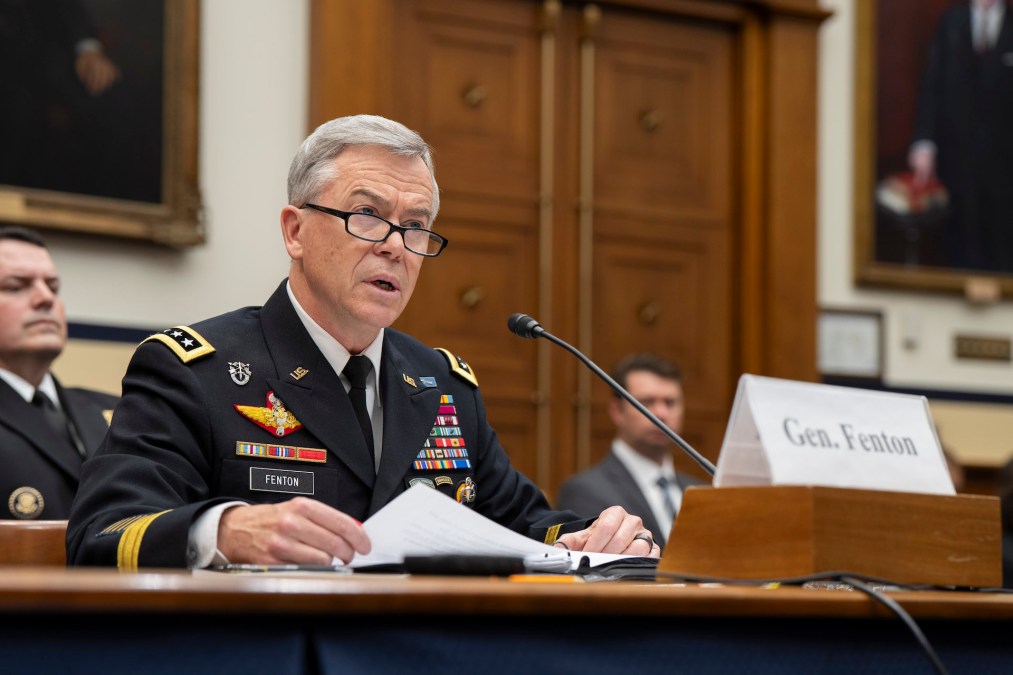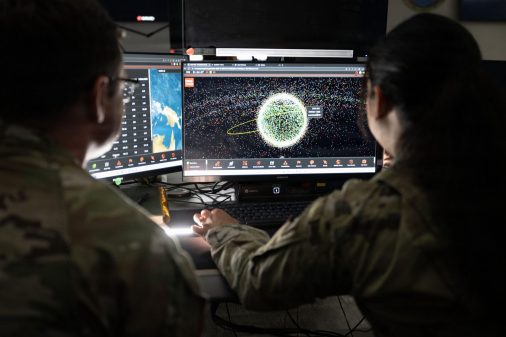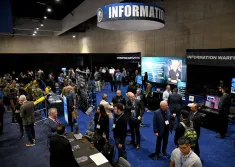SOCOM leader warns of information operations ‘void’

The head of U.S. Special Operations Command told lawmakers that America and its military must get better at information operations in the face of increased adversary investments in that space.
For years, members of Congress and outside experts have derided the U.S. government’s lack of information prowess, which atrophied after the Cold War. For the military, kinetic action typically takes precedence over non-kinetic information activities. And the interagency process can bog down information campaigns.
“There’s a sense of you may not win a war with information operations like you could with artillery, [but] you can certainly lose it if you’re not a key part of that putting out the messages,” Gen. Bryan Fenton, commander of SOCOM, told lawmakers at a Senate Armed Services Subcommittee on Emerging Threats and Capabilities hearing Tuesday.
Sen. Jeanne Shaheen, D-N.H., noted that China spends more than $1 billion on information operations to include disinformation and misinformation activities.
When pressed, Colby Jenkins, who’s performing the duties of the assistant secretary of defense for special operations and low-intensity conflict, told Shaheen that the Pentagon spends significantly less than that on info ops.
“We don’t have anybody in charge of information operations across, as far as I can [tell] … Defense, State and the administration. And the president just fired Gen. [Timothy] Haugh, the head of Cyber Command … We’ve dismantled our Global Engagement Center at the Department of State. We’re dismantling Voice of America, Radio Free Asia, all of the media that we’ve relied on really since the Cold War to get messaging across, to accurately reflect the position of the United States against our adversaries,” Shaheen said. “Help me understand how we’re able to compete in the information arena when we don’t have anybody in charge and when we’ve lost a lot of our people who are doing that work? … Should we be doing more to resource those information operations?”
Fenton, agreeing with other experts, articulated at a conference in February hosted by NDIA that the national security community should receive the grade of “F” strategically when it comes to information operations.
At the same conference, Jonathan Schroden, research program director at CNA, noted that his colleagues at the research organization conducted the information operations posture review required by Congress a few years ago. One of the findings was there’s no shared understanding of what an information-related capability is across the DOD, and there were around 15 different definitions of what constitutes that type of capability.
“If you can’t even speak the same language between the Navy and the Army and Air Force, my god, how do you expect to do anything effectively?” he said.
Others noted small successes but said they need to do more.
“We’ve had a couple of successes where we’ve been able to connect information operations with the kinetic operation, and we’re high five and slap ourselves in the back. But what was noteworthy is, why aren’t we doing that at scale? And there’s just one example amongst 200 strikes that that’s not sufficient,” Lt. Gen. Sean Farrell, deputy commander of SOCOM, said at the NDIA event. “It’s a drop in the bucket. We need to be better in information operations.”
In congressional testimony before Senate and House panels this week, Fenton noted that a void has been created due to the lack of such activities.
“My sense is that there is a void. You mentioned misinformation, disinformation by any adversary — there’s a void out there that’s not being filled by our message,” Fenton told senators Tuesday.
At a House Armed Services Subcommittee on Information and Special Operations hearing Wednesday, speaking specifically on operations in Africa, Fenton said: “That information operation void, in many ways, I think, allowed adversaries to get in there and [with] mistruths, untruth, falsities, put a different narrative based on their view of the world, what they wanted, and mostly the great work we’ve done for years.”
Fenton told lawmakers the U.S. has good narratives and should be using that to its advantage.
“As United States of America, we’ve got a great message to tell … We take it, certainly in Special Operations Command, with our information ops professionals, to really work at that in concert with … our country teams, our embassy country teams, to put those messages out that assure populations or reassure — and also at points in time, deter adversaries,” he explained.
Fenton wants to flip the military’s mentality. Instead of having kinetic activities followed up by information operations, it should be the other way around, he said at the NDIA event in February.
Delegation of authorities has to go lower as well in order to enable greater speed, he suggested.
“If we’re going to do something, we’re usually swinging behind the 8-ball,” he said. “I think that the delegation probably has got to go to a lot lower level. In many cases, not doing it and the decision to say ‘no’ is probably actually accruing more risk than actually doing it, even if it had a modicum of not getting out there just right.”






